In the diverse landscape of Indian cuisine, the abundance of leafy greens plays a crucial role not only in adding flavor and texture but also in providing a myriad of health benefits. While favorites like spinach, fenugreek, and kale often steal the spotlight, there are several lesser-known Indian leafy vegetables that deserve recognition for their unique flavors and nutritional offerings.
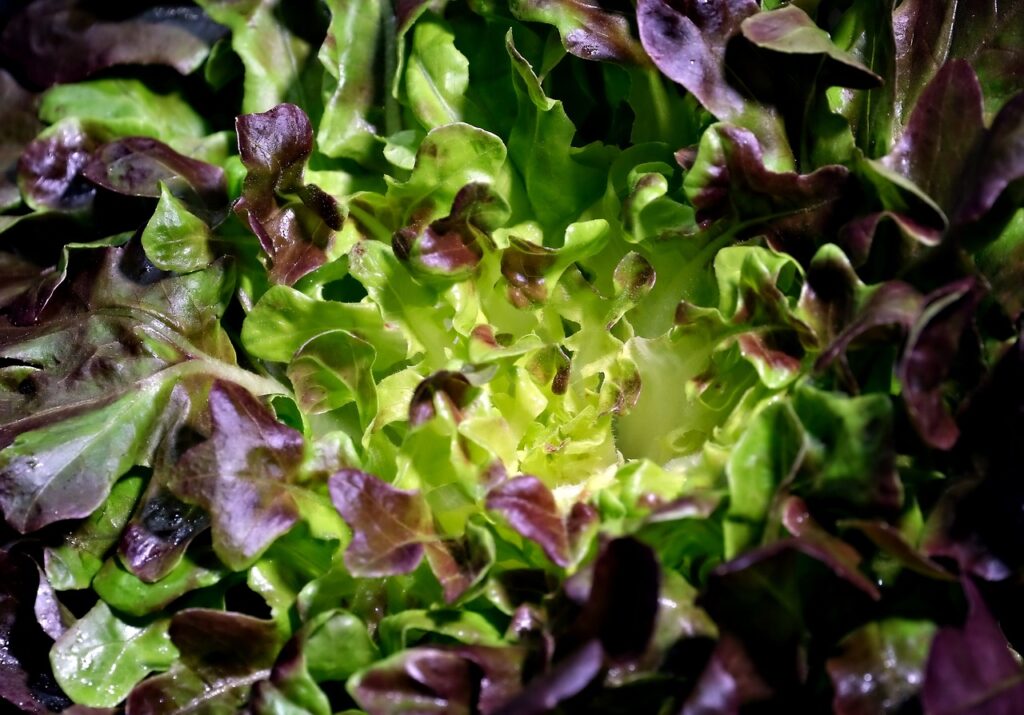 Pin
Pin Image by hartono subagio from Pixabay
Table of Contents
1. Mesta Leaves (Hibiscus cannabinus)
 Pin
Pin Image from Hobby Seeds
These vibrant green leaves are rich in iron and fiber, making them a great addition to your diet for promoting healthy digestion and boosting hemoglobin levels.
1. Nutritional Content:
- Iron: Mesta leaves are a good source of iron, an essential mineral that plays a crucial role in transporting oxygen throughout the body. Adequate iron intake helps prevent anemia and fatigue.
- Fiber: These leaves contain dietary fiber, which supports healthy digestion. Fiber adds bulk to stool, promotes regular bowel movements, and prevents constipation.
2. Health Benefits:
- Digestive Health: The fiber content in Mesta leaves aids in maintaining a healthy digestive system. It prevents constipation, supports gut health, and may reduce the risk of gastrointestinal disorders.
- Boosting Hemoglobin Levels: Iron is a key component of hemoglobin, the protein responsible for carrying oxygen in red blood cells. Consuming Mesta leaves can contribute to maintaining optimal hemoglobin levels.
- Anti-Inflammatory Properties: Some studies suggest that Mesta leaves possess anti-inflammatory properties, which may benefit overall health.
3. Culinary Uses:
- Mesta leaves are commonly used in traditional Indian cuisine. They can be added to curries, stews, and soups.
- They are also used to prepare herbal teas or infusions, which may enhance digestion and provide a mild iron boost.
Incorporating Mesta leaves into your diet can be a flavorful and nutritious choice. As always, consult with a healthcare professional or a registered dietitian for personalized advice on dietary changes.
2. Kohlrabi Greens (Monjji)
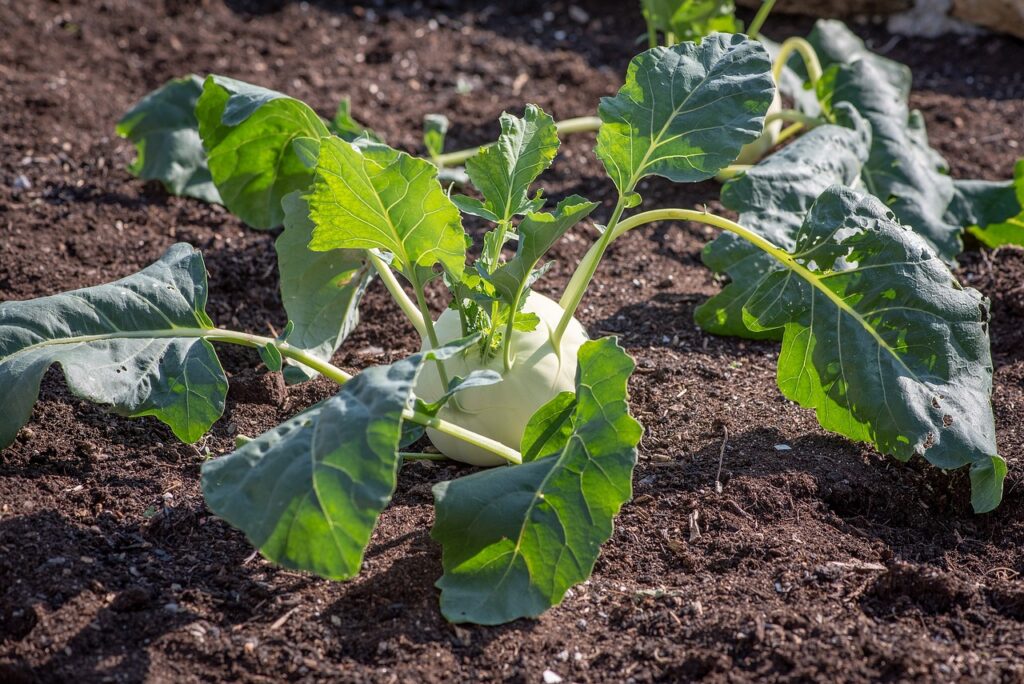 Pin
Pin Image by Petra from Pixabay
Often overlooked, these leafy greens are packed with vitamins A, C, and K, essential for maintaining healthy vision, immunity, and bone health.
1. Nutritional Content:
- Vitamin A: Kohlrabi greens are rich in vitamin A, which is crucial for maintaining healthy vision. It supports the health of the retina and helps prevent night blindness.
- Vitamin C: These greens provide a good dose of vitamin C, an antioxidant that boosts immunity, aids collagen production, and supports skin health.
- Vitamin K: Kohlrabi greens are an excellent source of vitamin K, essential for blood clotting and bone health.
2. Health Benefits:
- Vision Support: Vitamin A in Kohlrabi greens promotes eye health, reduces the risk of age-related macular degeneration, and maintains clear vision.
- Immune System Boost: Vitamin C strengthens the immune system, protects against infections, and aids in wound healing.
- Bone Health: Vitamin K plays a vital role in bone metabolism, ensuring proper calcium utilization and bone density.
3. Culinary Uses:
- Kohlrabi greens can be used like spinach or kale. Sauté them with garlic and olive oil, add them to soups, or use them in stir-fries.
- Their mild flavor pairs well with other vegetables and complements various dishes.
Include Kohlrabi greens in your meals to reap their nutritional benefits!
3. Basella Alba (Malabar Spinach)
 Pin
Pin Lone Star Nursery
This leafy vegetable is a good source of antioxidants and vitamins, contributing to its anti-inflammatory properties and potential to improve heart health.
1. Nutritional Content:
- Antioxidants: Malabar spinach contains an impressive range of antioxidants, including beta-carotene, lutein, zeaxanthin, and vitamin C. These antioxidants protect your cells from damage, support healthy aging, and reduce the risk of certain cancers.
- Vitamins: It is rich in vitamin A (100 grams contain roughly 8,000 units), which promotes healthy vision, and vitamin C, which boosts immunity.
- Minerals: Malabar spinach provides essential minerals such as iron, calcium, magnesium, phosphorus, and potassium.
2. Health Benefits:
- Anti-Inflammatory Properties: The antioxidants in Malabar spinach contribute to its anti-inflammatory effects. Reducing inflammation is crucial for overall health and may help prevent chronic diseases.
- Heart Health: The combination of antioxidants, vitamins, and minerals supports cardiovascular health. Vitamin C helps maintain blood vessel integrity, while potassium helps regulate blood pressure.
- Vision Support: Vitamin A and other antioxidants promote eye health and protect against age-related macular degeneration.
3. Culinary Uses:
- Malabar spinach can be used in various dishes. Its mild flavor makes it versatile.
- Add it to salads, stir-fries, soups, or sauté it with garlic and olive oil.
Remember to include Malabar spinach in your meals to enjoy its health benefits!
4. Water Amaranth also known as Chaulai Saag (Amaranthus dubius)
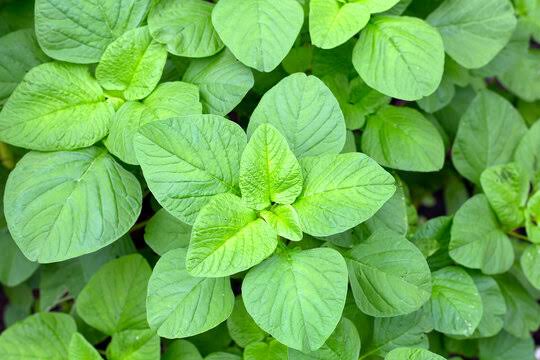 Pin
Pin Image from Adobe Stock
Known for its high calcium content, these greens are beneficial for maintaining bone strength and preventing osteoporosis.
1. Nutritional Powerhouse:
- Water Amaranth leaves are rich in essential vitamins, minerals, and antioxidants.
- They contain high levels of vitamins A, C, and K: Vitamin A supports immune function and skin health. Vitamin C boosts immunity and acts as an antioxidant. Vitamin K is crucial for blood clotting.
2. Bone Health:
- The calcium content in Water Amaranth contributes to maintaining strong bones.
- Regular consumption may help prevent osteoporosis and improve bone density.
3. Heart-Healthy Food:
- Low in calories (only 23 calories per 100g), Water Amaranth is an excellent choice for weight management.
- It contains no cholesterol and is heart-friendly.
4. Inflammation Reduction:
- Phytonutrients and antioxidants in Water Amaranth help reduce inflammation in the body.
Remember to include Water Amaranth in your diet for its nutritional benefits!
5. Red Amaranth (Laal Maath/ Laal Saag)
 Pin
Pin The Seed Collection
1. Nutritional Powerhouse:
- Red Amaranth leaves are a storehouse of essential phytonutrients and antioxidants, which help reduce inflammation in the body and provide an extra boost of nutrition.
- They are rich in vitamins A and K, crucial for maintaining healthy eyesight, strong bones, and a healthy immune system.
2. Low in Calories:
- Just 100 grams of Red Amaranth leaves carry a mere 23 calories.
- With traces of fat and absolutely no cholesterol, they are a healthy choice for weight management.
3. Heart-Healthy Food:
- Red Amaranth leaves are considered heart-healthy due to their potassium and fiber content.
- Regular consumption may help reduce the risk of heart disease.
4. Iron Source:
- Amaranth seeds are a good source of iron, making them beneficial for preventing anemia.
Remember to include Red Amaranth in your diet to enjoy its nutritional benefits!
6. Indian Sorrel also known as Changeri (Gongura)
 Pin
Pin Image from Webdunia
Popular in Andhra Pradesh cuisine, Indian Sorrel is rich in vitamin C and antioxidants, aiding in boosting immunity and protecting against oxidative stress.
1. Nutritional Content:
- Vitamin C: Indian Sorrel is abundant in vitamin C, a powerful antioxidant that supports the immune system and helps protect against oxidative stress.
- Other Nutrients: It also contains vitamins B1, calcium, and iron.
2. Health Benefits:
- Immune Boost: The high vitamin C content aids in boosting immunity, making Indian Sorrel a valuable addition to your diet.
- Antioxidant Properties: Antioxidants in Indian Sorrel help combat free radicals and promote overall health.
- Digestive Health: It improves digestion and may alleviate stomach discomfort.
- Halitosis Remedy: Chewing Indian Sorrel leaves freshens breath and reduces foul mouth odor.
- IBS Support: It can be helpful for individuals with irritable bowel syndrome (IBS).
3. Culinary Uses:
- Indian Sorrel is popular in Andhra Pradesh cuisine, where it is used to prepare delicious dishes like Gongura pickle and Gongura pachadi.
- Its tangy flavor adds depth to curries, chutneys, and rice preparations.
Include Indian Sorrel in your meals to enjoy its health benefits!
7. Red Sorrel (Lal Saag/ Laal Shaakh)
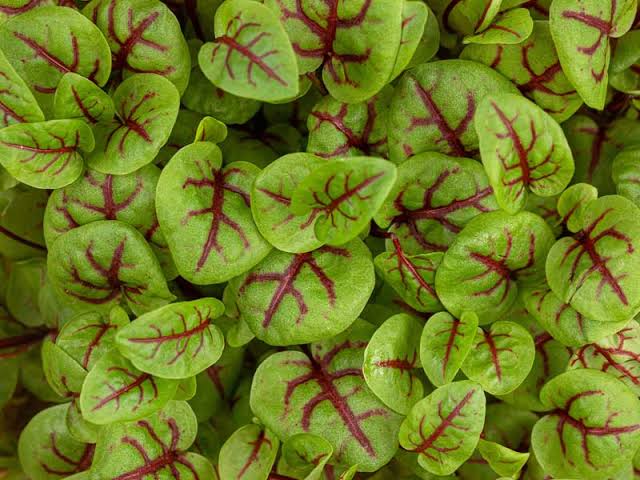 Pin
Pin Image from Seedmart Australia
1. Nutritional Powerhouse:
- Red Sorrel is a rich source of vitamins A, C, and K.
- Vitamin A: Supports healthy vision.
- Vitamin C: Boosts the immune system and acts as an antioxidant.
- Vitamin K: Crucial for blood clotting and bone health.
- It also provides essential minerals like iron and calcium.
2. Health Benefits:
- Immune Support: Abundant vitamin C fortifies your immune system during winter.
- Digestive Health: High fiber content aids digestion and relieves constipation.
- Eye Health: Vitamin A helps prevent eye-related issues.
- Blood Purification: Red Sorrel has blood-purifying properties.
- Improved Hemoglobin: Rich in iron, it benefits those with anemia.
- Appetite Stimulant: Unique properties can stimulate hunger.
Consider making Red Sorrel a staple in your winter diet—whether as greens or in various dishes—for a flavorful journey with health perks!
8. Indian Pennywort also known as Brahmi (Centella asiatica)
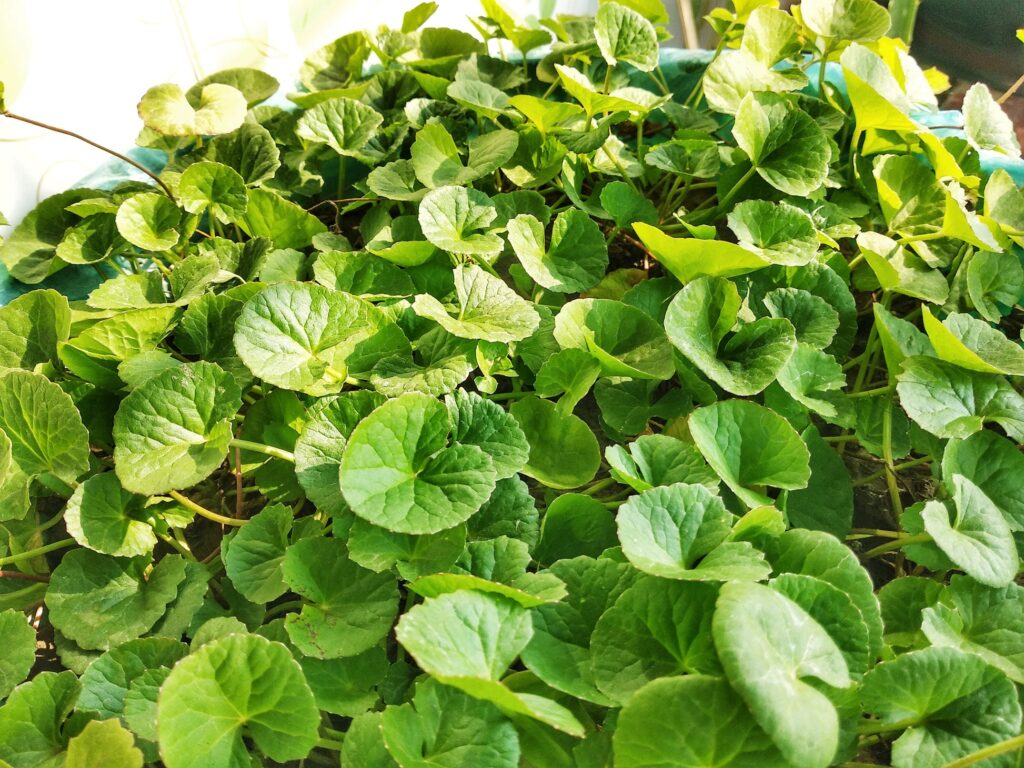 Pin
Pin Image from ftlon
Also known as ‘vallarai’, these leaves are believed to enhance cognitive function and memory, making them a valuable addition to your diet.
1. Cognitive Enhancement:
- Indian Pennywort has been traditionally used to enhance cognitive function and memory.
- It activates neurons and nerves in the brain, potentially improving focus, learning, and reasoning abilities.
2. Rich in Antioxidants:
- Indian Pennywort is rich in antioxidants, which protect cells from oxidative stress.
- Antioxidants contribute to overall health and may support brain function.
3. Blood Circulation:
- Regular consumption of Indian Pennywort may improve blood circulation.
- Improved circulation benefits overall health and vitality.
4. Other Benefits:
- It may help reduce body heat and promote relaxation.
- Indian Pennywort is believed to increase hemoglobin levels, benefiting those with anemia.
- It supports eye health and cleanses the blood.
Include Indian Pennywort in your diet for its potential cognitive and overall health benefits!
9. Edible Hibiscus also known as Okra (Abelmoschus esculentus)
 Pin
Pin Image from Hobby Seedscenterofthewebb – eCRATER
The leaves of this plant are a good source of protein and essential amino acids, making them a great choice for vegetarians looking to increase their protein intake.
1. Nutritional Content:
- Protein: Okra leaves are surprisingly rich in protein, containing approximately 12% protein by dry weight. This makes them a valuable source of plant-based protein.
- Vitamins: Okra leaves are high in vitamins A and C. Vitamin A supports healthy vision, while vitamin C boosts immunity and acts as an antioxidant.
- Iron: Okra leaves also provide iron, an essential mineral for blood health.
2. Culinary Uses:
- Okra leaves can be cooked and consumed like other leafy greens.
- They are versatile and can be added to soups, stews, curries, or sautéed as a side dish.
3. Health Benefits:
- Protein Intake: For vegetarians seeking protein alternatives, okra leaves are an excellent choice.
- Immune Support: The vitamin C content contributes to overall health and immunity.
- Iron Boost: Including okra leaves in your diet may help prevent iron deficiency.
10. Sweet Potato Leaves (Shakarkandi)
 Pin
Pin Image from Gardening Know How
Often discarded, these leaves are high in vitamins and minerals, offering anti-inflammatory and immune-boosting properties.
- 1. Nutritional Value:
- Calories: 100 grams of steamed sweet potato leaves contain only 35 calories.
- Protein: A surprising 4.0 grams of protein, making them a good plant-based protein source.
2. Vitamins:
- Vitamin A: Essential for a healthy immune system and antibody production.
- Vitamin K: Supports blood clotting and bone health.
- Vitamin C: Boosts immunity and fights infections.
3. Minerals:
- Iron: Helps prevent anemia.
- Magnesium: Supports overall health.
- Potassium: Important for heart health.
- Antioxidants: Sweet potato leaves contain lutein, beta-carotene, and other beneficial phytonutrients.
4. Health Benefits:
- Boosting Immunity: Vitamin A and C contribute to a strong immune system.
- Promoting Healthy Digestion: High dietary fiber content aids digestion and prevents constipation.
- Anti-Inflammatory Properties: Beneficial for overall health.
- Cellular Health: Antioxidants support cellular well-being.
5. Culinary Uses:
- Use sweet potato leaves in salads, stir-fries, or sauté them as a side dish.
These often-discarded leaves are a nutritious addition to your diet!
11. Taro Leaves (Arbi Ke Patte)
 Pin
Pin Image by Dimitris Vetsikas from Pixabay
Rich in fiber and vitamin E, these leaves support digestive health and promote glowing skin.
1. Promotes Eye Health:
- Taro leaves are an excellent source of vitamin A, crucial for vision.
- They help prevent macular degeneration and delay cataract onset.
2. Boosts Immune System:
- Taro leaves contain vitamin C, which supports white blood cell production and immunity.
- Try Colocassia Leaf Raita for a vitamin C boost.
3. Heart Health:
- The fiber (1.3 g/cup) in taro leaves helps reduce cholesterol levels.
- Potassium maintains normal blood pressure.
- Folate (56.7 mcg/cup) protects against heart diseases.
4. Antioxidant Properties:
- Taro leaves’ vitamin A and C act as powerful antioxidants.
- They may help prevent chronic diseases like cancer.
5. Healthy Digestion:
- The fiber adds bulk to stools, aiding digestion.
- Avoid fried preparations for maximum benefit.
6. Weight Management:
- Low-calorie taro leaves are ideal for weight watchers and diabetics.
Include taro leaves in your diet for their nutritional perks!
12. Fenugreek Greens (Methi)
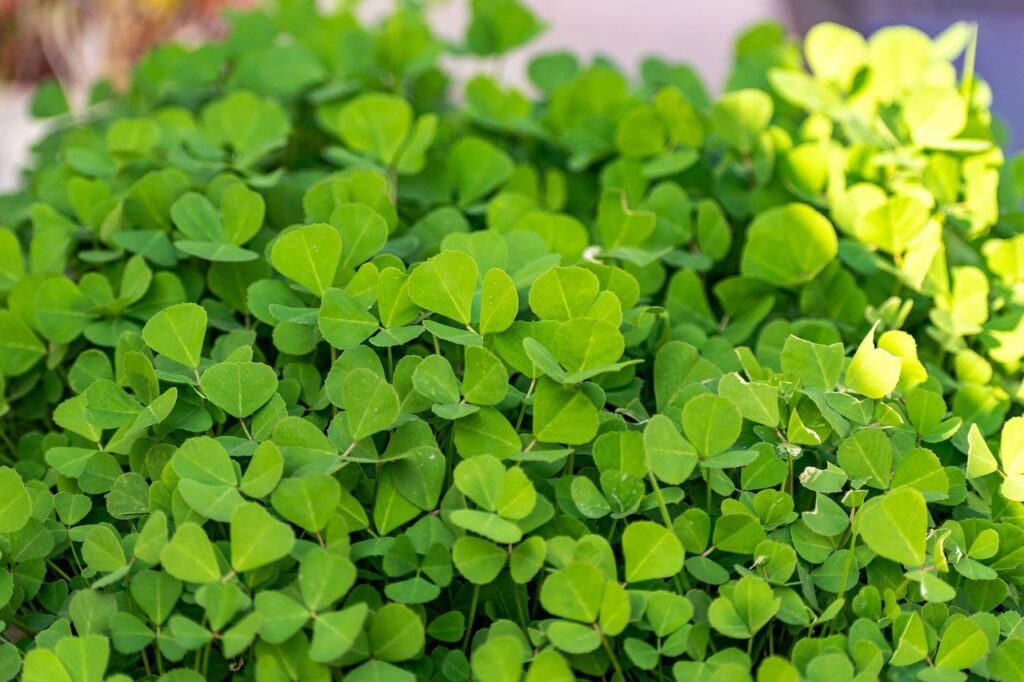 Pin
Pin Image by Rajesh Balouria from Pixabay
While fenugreek seeds are well-known, the greens of this plant are equally nutritious, with benefits for blood sugar regulation and heart health.
1. Low Calorie:
- One cup of methi leaves provides only 13 calories, making it an excellent choice for those watching their calorie intake.
- It adds bulk to your diet and keeps you satiated.
2. Strong Antioxidant:
- Fenugreek greens are rich in antioxidants like Beta Carotene and Vitamin C.
- These antioxidants boost your immune system and protect against common illnesses.
3. Bone Health:
- High in Vitamin K, fenugreek greens support bone metabolism.
- Vitamin K helps heal bone injuries and prevents osteoporosis.
- One cup of chopped fenugreek provides 110 mg of calcium (18.4% of RDA).
4. Culinary Uses:
- Use fenugreek greens in recipes like Methi Pakoda Kadhi and Methi and Moong Sprouts Wrap.
Include fenugreek greens in your diet for their nutritional benefits!
13. Curry Leaves (Kadi Patta)
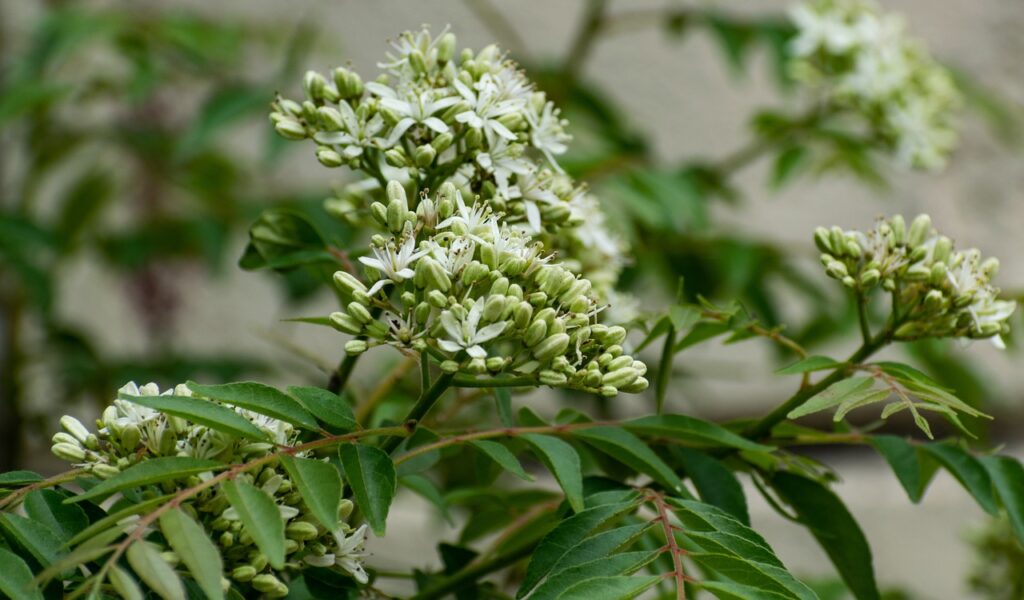 Pin
Pin Image by Rajesh Balouria from Pixabay
Widely used for their aromatic flavor in Indian cooking, curry leaves are rich in antioxidants and have antibacterial properties, supporting digestive health and promoting hair growth.
1. Aromatic Flavor:
- Curry leaves are widely used in Indian cooking for their distinctive aroma and flavor.
- They add depth to curries, rice dishes, and chutneys.
2. Antioxidant-Rich:
- Curry leaves contain antioxidants like beta-carotene, vitamin C, and flavonoids.
- These compounds protect cells from oxidative damage and support overall health.
3. Digestive Health:
- Curry leaves aid digestion by stimulating digestive enzymes.
- They may help alleviate indigestion and bloating.
4. Hair Growth:
- Curry leaves are believed to promote hair growth and prevent premature graying.
- Apply curry leaf oil or consume them regularly for potential benefits.
Include curry leaves in your culinary creations for their aromatic flavor and health perks!
14. Purslane (Kulfa)
 Pin
Pin 1. Rich in Antioxidants:
- Purslane is loaded with antioxidants, including: Vitamin A which Supports eye health and immune function. Vitamin C maintains collagen, blood vessels, and aids healing. Beta-carotene converts to vitamin A and reduces free radicals. Glutathione has anti-cancer properties. Melatonin improves sleep and supports blood pressure. Betalain may have antiviral and antibacterial qualities.
2. Potential Cancer Prevention:
- Purslane contains compounds like flavonoids and alkaloids linked to anti-cancer activity.
- Early studies suggest it could be used in cancer treatment.
3. Heart Health:
- Omega-3 fatty acids, usually found in fish, are present in purslane.
- These fatty acids support heart health and reduce inflammation.
4. Nutrient-Rich:
- High in vitamins A and C, as well as minerals like magnesium, calcium, and potassium.
- Low in calories and fat.
Include purslane in your diet for its nutritional benefits!
15. Garden Cress (Halim)
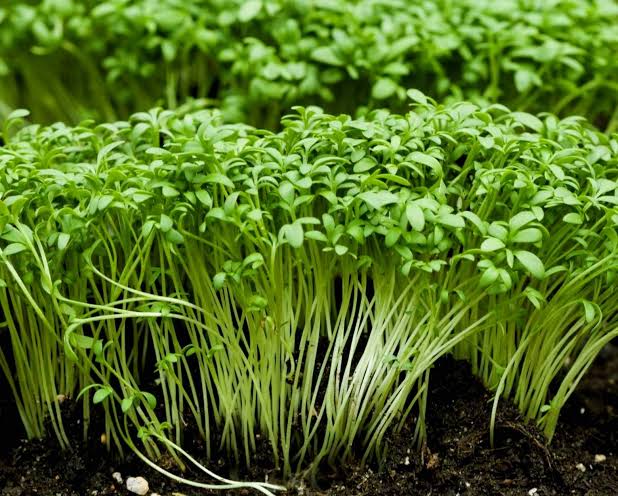 Pin
Pin 1. Nutrient-Rich:
- Garden cress is low in calories but packed with essential nutrients.
- One cup (50 grams) of raw garden cress contains: Calories – 16′ Carbs – 3 grams, Protein 1.3 grams, Fat – 0 grams, Fiber – 0.5 grams, Potassium 6% of the Daily Value (DV), Vitamin A 10% of the DV, Vitamin C 39% of the DV, Vitamin K 452% of the DV, Notably, it’s rich in vitamin K, crucial for blood clotting and bone health.
2. Bone Health:
- Garden cress is an excellent source of vitamin K.
- Adequate vitamin K levels are essential for strong bones and protection against conditions like osteoporosis.
3. Immune Support:
- Vitamin C in garden cress helps improve immune function.
- It acts as an antioxidant, reducing inflammation and supporting overall health.
4. Skin and Hair Benefits:
- Garden cress seeds contain essential fatty acids for healthy skin and shiny hair.
- The leaves provide vitamins A, C, and folate.
Include garden cress in your diet for its impressive nutritional profile!
16. Drumstick Leaves (Moringa)
 Pin
Pin 1. Nutrient-Rich Superfood:
- Vitamins: Moringa leaves are packed with essential vitamins, including vitamin B complex, C, and K.
- Minerals: They contain calcium, iron, zinc, manganese, and magnesium.
- Antioxidants: Moringa is a powerhouse of antioxidants like quercetin and chlorogenic acid.
2. Health Benefits:
- Blood Sugar Regulation: Moringa helps control blood sugar levels, reducing the risk of diabetes and heart disease.
- Cholesterol Management: It regulates cholesterol, supporting heart health.
- Anti-Inflammatory Properties: Moringa may reduce inflammation.
- Protection Against Arsenic Toxicity: Some studies suggest it can counteract arsenic toxicity.
- Liver Health: Moringa protects against nonalcoholic fatty liver disease.
- Digestive Health: The fibrous pods benefit digestion and may prevent colon cancer.
- Hair and Skin Nourishment: Moringa seed oil may promote skin healing, and its anti-fungal and antibacterial properties fight infections.
17. Gongura (Roselle Leaves)
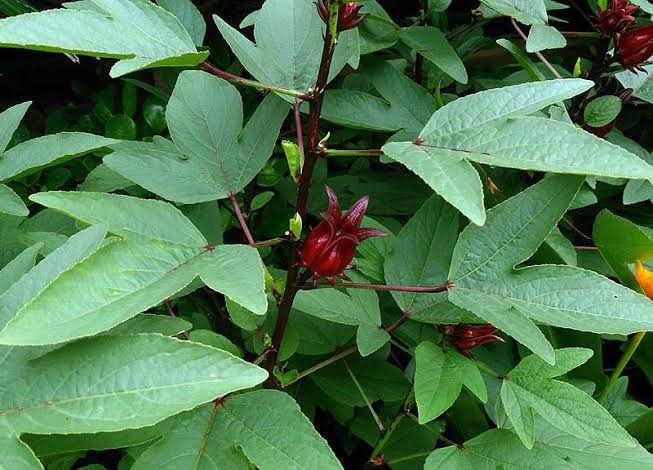 Pin
Pin Image from Hobby SeedsGardening in the Desert
1. Nutritional Density:
- Gongura leaves are nutritionally dense, supporting cleansing and rejuvenation.
- They are popular in Southern India for their unique sour taste and flavor profile.
2. Vitamins and Minerals:
- Vitamins: Gongura is an excellent source of vitamin A, B1 (thiamin), B2 (riboflavin), B9 (folic acid), and vitamin C.
- Minerals: It contains iron, calcium, potassium, magnesium, and sodium.
- Antioxidants: Flavonoids, polyphenolic acids, and anthocyanins provide organic nutrients and antioxidants.
3. Health Benefits:
- Liver Protection: Gongura supports liver health and improves blood quality.
- Blood Pressure Regulation: High potassium and magnesium content may help prevent hypertension.
- Hair Health: Gongura contributes to hair volume and health.
- Breast Milk Flow Reduction: Traditionally used to reduce excessive breast milk production.
- Anti-Cancer Properties: Some compounds in gongura may have anti-cancer effects.
- Anti-Inflammatory and Antimicrobial: Helps prevent inflammation and microbial activity.
- Iron Support: Prevents symptoms of low iron levels.
- Digestive Improvement: Gongura aids digestion.
Incorporate gongura leaves into your diet for their impressive nutritional profile and health benefits!
Conclusion
Indian leafy vegetables offer a diverse range of flavors, textures, and health benefits. Incorporating these greens into your diet can enhance overall well-being:
- Nutrient-Rich: From fenugreek to drumstick leaves, these greens are packed with vitamins (A, C, K), minerals (iron, calcium), and antioxidants.
- Heart Health: Many leafy greens support heart health by regulating cholesterol levels and blood pressure.
- Digestive Benefits: High fiber content aids digestion and prevents constipation.
- Immune Boost: Vitamins like C and antioxidants strengthen immunity.
- Skin and Hair Nourishment: Some greens promote healthy skin and hair growth.
- Anti-Inflammatory Properties: Several varieties have anti-inflammatory effects.
- Unique Flavors: Each leafy green adds its distinct taste to culinary creations.































